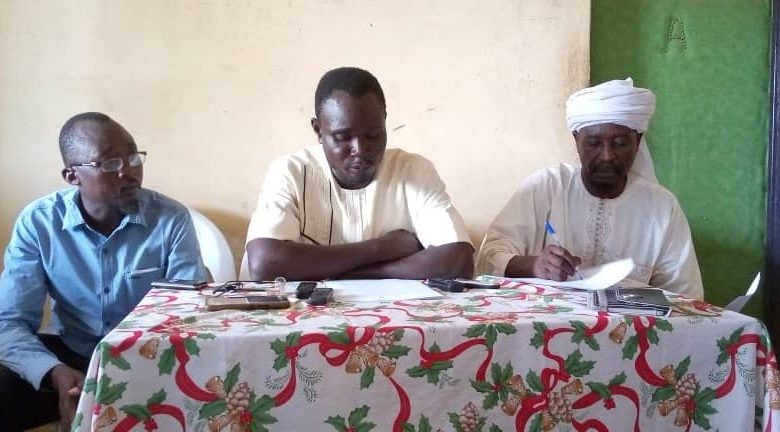Chadian Opposition Parties Challenge France To Clarify Position On Former President’s Death
After recognising the new Transitional Military Council (TMC) in Chad following the death of Idriss Deby, opposition parties are asking France to come out clean on its position on the death of the former leader.

Thirty-one opposition political parties in Chad have called for an investigation into the circumstances surrounding the death of Chadian leader Idriss Deby Itno.
In a statement made public in N’Djamena Thursday, April 22, the opposition parties demanded that “France clarifies its position because it should not support the prolongation of the dictatorship by supporting the Transitional Military Council (TMC), rather it should be on the side of the oppressed Chadian people.”
After Deby’s death on April 20, and the installation of his son, Mahamat Idriss Deby as the new Chadian leader, France was the first country to “take note” of the regime change in N’Djamena, implicitly legitimising the military takeover.
The Chadian opposition leaders expressed doubts about the circumstances surrounding the death of the former head of state.
“Exactly where did the combat in which he was wounded take place? On what day? At what time? How was the president wounded by bullets? Did he die on the spot or after his evacuation to the capital?” Djekombe Francois, one of the opposition leaders asked.
To the Chadian opposition leaders, these questions remain unanswered and they, therefore, called on the French head of state Emmanuel Macron to clarify the position of France as concerns the situation in Chad.
While outlining their positions on the Chadian situation, the opposition leaders said they considered the Transitional Military Council (TMC) as a military junta and called for its dissolution and the transfer of power to civilians.
They demanded that France if it has to interfere in the internal affairs of Chad, should assist as a friendly country by supporting the maintenance of peace, stability, and development in all forms and not in taking note of the putting in place of the TMC which they considered as a means of supporting the prolongation of the dictatorship in Chad.
The opposition leaders argued that during the transition, a new constitution must be elaborated and promulgated with a main backdrop to the March 31, 1996 constitution which was adopted in unanimity by political actors and which limited the number of presidential terms to two.
They also want that the transitional period should be the shortest possible —12 months— during which general elections, i.e. presidential, legislative and communal, must be organised.
Meanwhile, in a related development, the Mouvement des 12 Revendications (M12R) has rejected the military takeover in Chad and the institution of the Transitional Military Council (TMC).
“We say no to the conquest of power by force nor the remaining in power by force. By refusing to listen and communicate with the people, the country has been plunged into this situation,” declared Natoiallah Ringar, the president of M12R, during a press briefing in N’Djamena on Thursday.
“The Chadian people have no need for the name of Deby in power because the sequel of thirty-one years of the Deby power has been very painful.”
The M12R movement holds that it is urgent to organise an inclusive national dialogue within a very short time and in a neutral country with a view to putting in place a transitional government favourable to the people.
It maintained that dialogue is the final solution to the Chadian crisis.
In another development, the Chadian Syndicate of Social Affairs and Health Workers (SYNTASS) has called on all its members to observe only minimum services in all health establishments.
In a communique issued on Thursday, SYNTASS called on its members to respect the order contained in a communique issued by the Union des syndicats du Tchad (UST) on April 21, calling on workers to stop work.
SYNTASS made an exception to the total work stoppage for workers in hospitals and health centres calling on them to only observe a slow-down in their activities.
The trade union warned heads of health establishments who would want to force workers in general, and particularly local contract workers to put in more hours contrary to their order for a go-slow.
“The security of workers is also as important as that of the patients,” declared the communique which called on its militants to remain vigilant and wait for new instructions from the UST.
Summary not available.
Support Our Journalism
There are millions of ordinary people affected by conflict in Africa whose stories are missing in the mainstream media. HumAngle is determined to tell those challenging and under-reported stories, hoping that the people impacted by these conflicts will find the safety and security they deserve.
To ensure that we continue to provide public service coverage, we have a small favour to ask you. We want you to be part of our journalistic endeavour by contributing a token to us.
Your donation will further promote a robust, free, and independent media.
Donate HereStay Closer To The Stories That Matter




